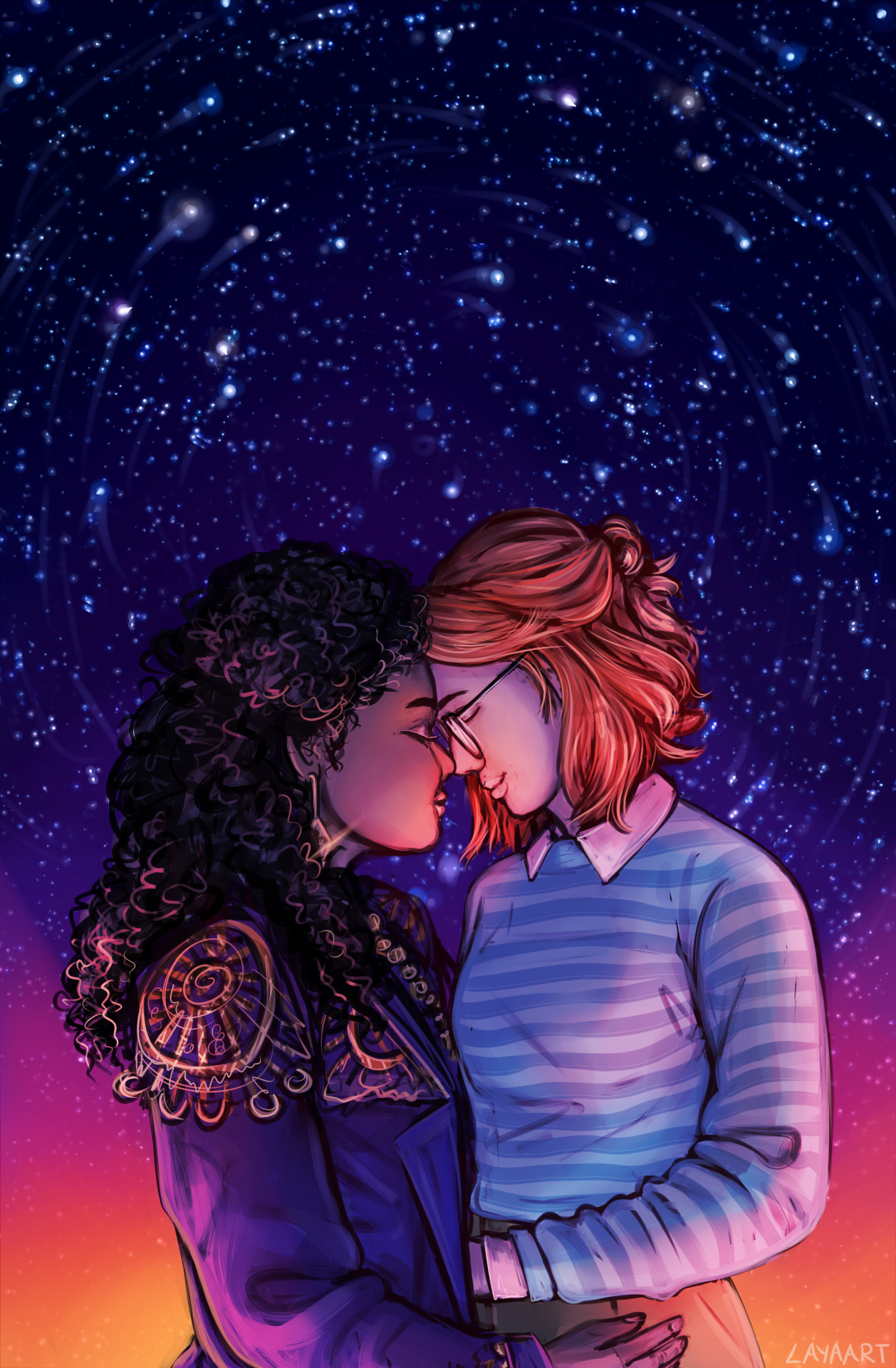I learned that the mitochondria is the powerhouse of the cell. And that busywork and adhering to the rubric is far more important than learning or producing anything useful.
I mean learning to follow a rubric actually was useful for me. Projects have scopes and expectations. Rubrics are those.
Sure, because a margin being off by a quarter inch should be worth more points than the actual content of the paper.
It can cost you a government contract as an adult. Also, it’s learning to format in accordance with instructions. It’s stuff like margins early on, but later it’s stuff like section headings and citations in APA or MLA. The margins are free points that you’re leaving on the table
For most people, yeah. A lot of work is tedious.
I went in hoping to learn some cool knew facts and already knew them all. Feels bad man.
Also seemed like more so myths than stuff that was actually taught and then later revised.
Check out Wikipedia’s List of Common Misconceptions.
That was a trip
Yeah, that was my big issue with the sites content. I wanted to find a list of obscure things taught wrong by decade, but all I could track down were a few myths that were shared across many different decades, so it led to the current (and imperfect) result.
I want to try and update the site to be more focused on what you mention - things that were taught and later revised, but the only way I can think to do that so far is track down old textbooks and compare them to what’s known now, which I’m not sure the best/most efficient way to do that, or even where to find textbooks by year.
All this to say, hopefully I’ll be able to improve the site in due time to make it better represent different facts and whatnot
It’s a neat website, but it is very America specific.
For example, I’m Australian and I wasn’t taught about slavery or genocide of our native people in high school. Hell, I was taught that the Stolen generation was a misnomer and children were only taken voluntarily or as an act of mercy… I graduated in 2008 so it wasn’t exactly the dark ages. Referring to the planned exterminations of the natives as “battles” and “conflicts” at best was another one. they didn’t even mention the shit that went down in Tasmania.
it’s not just the dumb stuff like food pyramids and taste zones, even in schools today history is being glossed over
I’m also a 2000s Australian high schooler and we had a notorious lack of Australian history taught to us. My school preferred to teach us the histories of pretty much every other country but our own. We didn’t learn a single thing about indigenous history at all, bad or good.
And then we struggle to understand the divide between the yes/no vote on The Voice.
I had a history teacher in (US) high school who was not afraid at all to tell his students the whole truth about stuff like this. Its too bad he was the only one not allowed to teach government classes.
Strange. The site doesn’t quite work properly for me. I set my decade, then changed it so I could see my parents and all the myths were the same.
Then I clicked around and they are the same for every decade that I selected.
That’s odd, thanks for pointing it out. I’ll see if I can’t make a fix
Same for me.
Browser is Safari on iPhone 15 Pro Max.
Same
I close the tab and repopen. Same results. It’s like it’s cached and stuck
I think it’s possible that people are simply confused because the answers are the same for most decades. But one thing I would try maybe is setting the “value” of the different options, since that’s what you’re reading.
As I understand it, if no value is set, the browser should return the name instead, so the way you have it should work, but that may vary depending on browser.
EDIT: I tried to give an example, but lemmy keeps filtering out my explanation even if I enclose it in code tags. Hopefully you know what I mean.
I have a hunch this is it. I’ll try your method and see if it works
Same for me. Everything on the list was stuff I already learned was bs so I went back a couple decades and it was the exact same list.
I graduated in 2003. My DARE teachers basically taught drug abstinence and telling an adult about people offering you drugs. The really didn’t talk about gateway drugs and what it does to your brain. This was in Illinois.
You’re not the first person to mention some regional differences. Think this is opening up a bigger research project of year graduated to region!
I graduated a few years before you, also in Illinois, and can confirm that.
I can also confirm that I have not resisted the devil’s lettuce.
I graduated in 2017, they definitely did for me in elementary school.
Update with context for you all since this post is unexpectedly taking off,
This was a small project I made in 5 hours as just a “huh, this would be neat to make!” and as a first coding project. I mostly shared it expecting a little bit of feedback but nothing too major, clearly I underestimated what to expect from it lol.
There’s been a lot of really good suggestions for how to improve the site and make it better, so thank yall for that! Things I’m planning on doing are:
-Making open source so people can edit. Its just basic HTML and JavaScript so nothing too complex there
-Suggestions box on the site
-Some type of regional variations listed on the site
-If possible, more obscure myths and more tied to the curriculum of schools
-Optimizing the site for mobile
Probably more to come as well, but no estimates on a timeframe since I’m very much so new to this haha
Edit: Additional clarification, yes this site is only viable for Americans right now. Would love to help make it work internationally but I’m sure not the person to try and say what people in other countries were taught in school, so if someone wants to help with that lmk!
It should work better on mobile devices now, but if there’s any repeated issues let me know and I can try to fix them.
It should also be public on Github, check out the description tab on the website for more info. My first time making a project open source (or even having one at all) so lmk if there’s any issues!
Perhaps put the context that this only applies to one country mate 😂
Wait there’s more than one??
Well yes. There is the US and then there is certain parts of Canada.
Worked fine on my mobile browser, Firefox on Android.
Did anyone else learn that eggs are dairy products? (Meaning, the word ‘dairy’ encompasses both eggs and milk. Not that eggs are somehow produced by cows)
Yes! Never really thought to question it though… now I’m re-thinking everything I thought I knew about food clarification!
Yes, and for some odd reason a lot of folks I know who are lactose intolerant are also slightly allergic to eggs…
deleted by creator
I had attributed that to our fuzzy food categories. Some of which are due to how ingredient usage doesn’t map well to botany, some is just marketing.
I suspect the perception of eggs as dairy could have shifted for practical reasons: lactose intolerance became more visible, and we needed a short way to say milk and milk products, without using the word milk.
Most of the selections give you the exact same outcome. Neat idea, but it needs work.
One thing that’s kind of funny to me about this is the 1940s, which has a lot of the ones from modern times…
You were probably taught at some point that we’d never be able to map out the entire human genome due to its complexity. However, in 2003, we documented the first 92%, and in 2022 we documented the remaining 8%.
I could be wrong (and I’d be super interested to hear if this was the case), but… Were we teaching kids about the human genome before we even knew the structure of DNA and before we knew that DNA carried genetic information? I know we knew DNA existed, and it was probably hypothesized that it could play a roll in genetics before the Hershey-Chase experiments in 1952, but I’m not sure whether most schools would talk much about anything resembling the human genome in the 1940s? What would have been in the curriculum then? It’s actually kind of wild how much the scientific landscape has changed since then.
From what I could trace, the 1940s myths were most likely spread around then (a lot were circa 1930s), just perhaps less commonly. I can definitely attest that at least in the scientific literature then, that was a common enough idea to be inaccurate since, so I’d assume that it was taught to students when approaching biology too. If I’m wrong on this though I can remove this from the site
The human genome one was the one that stood out to me. I’d be curious to see a source from the time if you’ve got one!
Cool site, maybe you can open source it, so people can contribute improvements. I have a few ideas myself:
- Add continent or even country selector
- Display facts in a table
- Full text search
I could add those functionalities myself if needed.
Posting a reply now, should be a Github link on the site to it as public. If not, github.com/MiraLazine/SchoolGotWrong
I think it should be open source but if its not lmk, I’d love to have some help on this because I mostly did this to learn
Cool, I’ll have a further look at it tomorrow when I’m home.
Open source is defined differently by different people. Some define it by the code being open to see for the public. Some define it by it’s license. In your case both the code is open and an open source license is used.
blank.docx i added this file by accident how do i delete a file in github
I can see you’re a bit new to it 😁. There is a button with … dots with the option to “delete” the file. Keep in mind that it will stay be retained in the history.
Haha yeah, I ended up figuring out how to delete it but kept the original text because I thought it’d be a good bit. And thanks for the info! Glad to know its like that either way
A fun fact about taste for you - there is actually no such thing as a ‘taste map,’ or the idea that different areas of the tongue result in you tasting different things. At most, there’s just different regions of sensitivity to taste!
Always thought this was weird and didn’t make sense to my tongue.
You might’ve been taught that lemmings are known to commit suicide because they’re just that unintelligent. Turns out, this isn’t true - they’re smart enough to stay alive!
I blame the video game.
Blame Disney, they’re the one who funded the “documentary” about them.
I never saw the documentary, but I killed a lot of virtual lemmings.
The game was made as it was because of the myth perpetuated by the documentary. On Linux, there was no lemmings game, it was called pingus and it was penguins you killed instead (there may have be a lemmings for Linux, but the first version of Linux I installed myself had pingus already installed).
I do understand that, really, I do.
i don’t think you do.
hey! somebody post an even longer paragraph including the history of lemmings and at least 3 barely related anecdotes.
I actually do understand the point, my responses now are specifically to annoy know-it-all assholes who insist I don’t get it.

You become what you hate most sometimes.
Sucks, doesn’t it?
The theory of a taste map had no scientific basis, i remember funnily enough writing in a school paper that the taste map didn’t exist and got a lower grade for getting my answer wrong even though in hindsight i was the one who was right and i got forced to believe in a medical myth.
Have to wonder how many more of us thought it didn’t make any sense, but didn’t push back because adults said it was so and it was in the textbooks.
I was just far too skeptical for my age and it caused me to have worse exam performance usually having me go from an A to a B- just for defying the teacher. School is more about following authority than anything else I believe.
True. I didn’t openly question things in that class too much for some reason, but I definitely got in trouble for being argumentative in other classes.
I think it’s ridiculous that you can lose a full grade just for being disobedient. I get that school is made for the child to grow up to have a good job but this stops people more inclined to innovate to get far academically.
“Why did I lose a full grade here?”
“You didn’t learn your lesson.”
You were probably taught at some point that people in the time of Christopher Columbus all thought the world was flat. However, this is a myth that pervades history - most people knew the earth was a globe! (Source)
Goddamnit! I’ve heard that so often already.
And then I learned separately that even the Greeks already knew not only that Earth was round, but even its circumference at a pretty good accuracy.
These two ‘facts’ genuinely had me thinking we must have lost a ton of knowledge from the Greeks…
The Renaissance was fueled in part by the fall of Constantinople and all of the Greek texts that came with those who fled to Italy.
The real truth is that the catholic church purposefully wanted people stupid and uneducated and that’s why people started believing in the flat earth even after the Greeks. but they don’t teach you that in school!
A lot of their knowledge was from the Sumerians and other ancient civilizations anyway. Sumerians were doing trig thousands of years before the Greeks did; the Greeks’ records were just the ones that were preserved.
When I was in school, Pluto was still a planet. And it still is in my heart!!
I’ve never understood this obsession. Odds are you’ve never heard of Ceres, but it was once called a planet. It’s now considered a dwarf planet, like Pluto. Pluto is also less massive than Eris, so if you include Pluto you should also include Eris. None of these have cleared their orbit though.
I understand it’s frequently just a joke, but it’s always rubbed me weird because some people actually became science skeptics because “suddenly Pluto isn’t a planet” or whatever. Really the reason is because the list would get really long if we included everything.
Ceres and Eris weren’t talked about at all when i was in school. They were like a family relative that nobody talks about.
I understand the reason behind the change, its just fun to say that earth kicked them out of the league of planets.
“You heard about Pluto? Messed up, huh?”
Since you seem to be knowledgeable and I’d like to continue discussion, do you think there are “earth like” dwarf planets that could support life?
Probably not. At least not earth like. Planets have to be sufficiently large to maintain an atmosphere.
It may be possible for one like an ice moon to harbor life, but it needs something to generate heat and prevent the ocean from freezing solid.
I suppose there could also be a situation where the planet is sufficiently large to retain an atmosphere, but somehow hasn’t cleared it’s orbit.
Earth like? No. They’re too small to hold any reasonable atmosphere. That doesn’t rule out life, but it’s unlikely. They’re also likely too small to have subsurface oceans or things like that without being tied to a planet and having strong tidal forces squishing it, in which case it’d be a moon not a dwarf planet.
You’ve probably seen/heard this song already, but just in case. Pluto is Hot Shit.
Ive heard other songs by him, not this one. Always great tunes.
Pluto is still legally a planet in New Mexico and Illinois.
I remember my little brother coming home from DARE convinced that my dad was an alcoholic for having a single beer after work then said little brother breaking down in tears over it. Good times.
LOL, I cracked a beer open one night and my kid laughed, pointed, and yelled out,"You are a Homer!!"
EDIT: I also remember when DARE came to my school and this cop had a big baggie of weed on his table. I said,“Damn! That’s a lot of weed!”
Then the cop replied, very seriously,“THAT’S ENOUGH MARIJUANA TO KILL YOU!!”
My friends and I just laughed and walked away.
I graduated in the 2000’s and the only falsehood from this list I remember being taught was the one about taste buds.
Yea I feel like a lot of these came from friends or other sources, and not necessarily from school.
I have definitely been told by nurses to tilt my head back if I had a nose bleed.
Honestly I don’t recall my schools ever having a “school nurse”. I assume most of the teachers were trained in first aid. I went to school in Ontario. Are school nurses an American thing?
Cool concept but your site really needs some work done. I heard in school that lemmings would kill themselves and i went in the 2010s. This is only one such example, the best thing you could have done is map out which myths are most common where instead of the decade, and it would also be useful to add a important corrections list for the more important facts which you probably were misinformed about.












